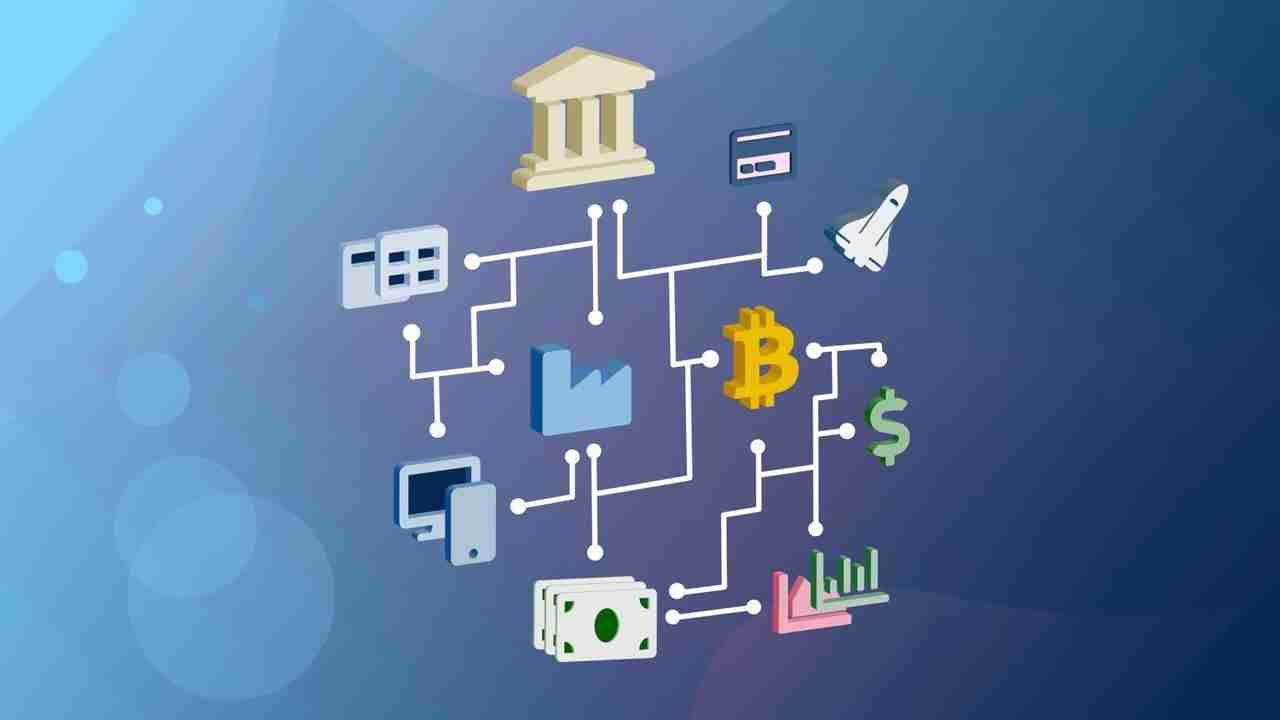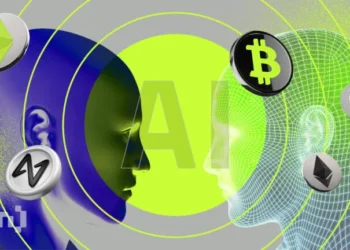The blockchain ecosystem, having undergone a lot of evolution now stands at crossroads. This ecosystem is a crucial subject for crypto investors as it assists in determining the present health of a blockchain.
In recent times however, it has witnessed a lot of financial restrictions which has prompted many stakeholders and businesses to leave early. This is where crypto grants come in as they serve as a long-term sustainability and vital lifeline of this ecosystem.
What are crypto grants?
Perceived as a life-line for the builders of the ecosystem, crypto grants emerged as a trail of hope in the era of the difficulties faced by the ecosystem.
Organizations like Uniswap Foundation, Dfinity (ICP), 1inch, Near, Aave, Algorand, Aztec, Solana foundation and so many others have welcomed the importance of being supportive to builders in the Web3 space even in the midst of harsh market conditions.
The initiated grant programs perform as a shield against the economic restraints that have prompted many crypto start-ups to fold. They bring a level of financial security that can make all the difference for potential projects, allowing them to constantly flourish, transform and contribute their quota to the smooth running of the ecosystem.
At its core, crypto grants offer a priceless lifeline for Web3 builders and enthusiasts, assisting them in promoting job security for the professionals in the ecosystem who fuels the space behind the scenes. In essence, crypto grants play an important role in promoting the development and extension of blockchain projects.
However, there could be challenges in the distribution of these grants which could stifle the development and success of projects in the ecosystem. One major challenge that ails this system is in the politics that at times affect the grant awarding process.
It’s no new knowledge that insiders or well-connected people tend to be preferred or picked over a clearly merit-based system. This situation directly leads to a less-than-optimal distribution of resources and, in most cases, negative implications for stakeholders.
This partiality in distribution could lead to situations where projects with massive potential falter. This could further result to the dumping of the native tokens of these projects in the process of backdoor dealings, leading to a loss of value for contributors and investors.
To ensure the sustenance and success of these projects, the challenges must be addressed. One of the ways to do this is to guarantee that the grant awarding and distribution goes through a well-documented, thorough, transparent and rigorous process to ascertain legal agreement at every step. Also, globalization of crypto grants has a way of impacting projects across borders. It can effectively link the gap between developed and emerging markets.
What to know about crypto grants
Developments in the crypto space are extremely dynamic in nature. Crypto grants are regarded as financial incentives provided by blockchain and cryptocurrency organizations to promote innovation and development within their ecosystem.
These grants are usually awarded to teams or individuals that suggest projects which align with the company’s goals and equally contribute to the growth and expansion of their platform.
Crypto grants are deployed in various ways for varying purposes, ranging from developing new features, refining current features, conducting research, generating educational contents, or promoting community growth and initiatives within the ecosystem and blockchain.
Applying for a crypto grant requires the interested party (individual or organization) to submit proposals outlining their projects, goals, and the ways in which the grant funds can be put to use. This process and its eligibility status varies depending on the project. One must ensure that the project they are pitching for aligns with the goals and values of the crypto ecosystem that is offering the grant.
It is also important to note that grants are typically dispersed in the form of tokens native to the blockchain or cryptocurrency platform delivering the grant and understanding the tokenomics and utility of these tokens is a vital stage for candidates.
Moving forward, let’s take a look at the categorization of grants in the crypto ecosystem and web3 based on their purposes, bearing in mind that these categories are not limited in their purposes as they can overlap and aid numerous purposes:
- Development grants just like the name suggests are awarded to projects that contribute to the development of blockchain platforms.
- The research grants are distributed to individual or organizations who are conducting research and discoveries that can possibly promote the blockchain or crypto space in general.
- Grants are also given to projects that are targeted at improving or creating the necessary tools and infrastructure for blockchain platforms. These are regarded as infrastructure grants.
- The community building grants are targeted at promoting community engagement and development.
- We also have the education and application grants which are intended for projects that concentrates on educating the general public about blockchain and crypto or developing apps that enable the use of these technologies.
- Lastly are the ecosystem grants. These types of grants are awarded to projects that are concerned with fostering the total ecosystem of a particular platform.
Notwithstanding, crypto grants can also be grouped based on their source of funds. Some blockchain networks and their treasuries fund some, while some others use crowdfunding to source funds dispersed to developers. Now let us look at the grants that fall within these two funding categories and how they can inspire new project developments.
Treasury-funded crypto grants
Most crypto grant programs are funded by the project’s treasury, as voted on by holders of the project’s native token. Here, financial support is being provided by project treasuries or specific blockchain networks for projects within the cryptocurrency and blockchain space.
They are mostly propounded by the inventors of a specific cryptocurrency or blockchain project. They are also known to use a fragment of the project’s treasury or assets to fund development and invention within their ecosystem.
Here are a few examples:
BNB Chain Developer Programs
This is an initiative by BNB Chain to fund developers and creators within the blockchain ecosystem. This program proposes several forms of grants, incentives, and programs to enhance innovation and contribute to the long-term usage of the BNB Chain.
The available grants available here includes: the builder grants (which empowers developers), the Gas Grant which is targeted to support early-stage projects and the Most Valuable Bulder (MVB) program for Web3 startups globally.
Developers can fill an online form on the BNB Chain website within the first seven days of every month in order to apply for this grant.
Ethereum Foundation ESP Grants
The Ethereum Foundation grant is supported and operated by the community & Ethereum enthusiasts. It funds the projects that are built to support Ethereum (ETH) through technical or non-technical means. Projects going for token launch or crowdfunding cannot apply for this grant.
The support provided by this grant acts as financial incentives and assistance for developer teams working on innovations to make Ethereum more efficient, effective, secure, and user-friendly. Interested parties should regularly check the foundation’s website for updates and process on how to submit their proposals.
Avalanche Multiverse and Blizzard
This is a decentralized platform for creating and trading NFTs on the Avalanche blockchain. The blizzard fund is a grant program that makes provision for artists, developers, and builders in the Avalanche ecosystem and beyond, with a substantial $200 million-plus budget. It is an on-going enterprise with an allocated $290 million budget. The primary goal of this initiative is to accelerate the approval and advancement of Avalanche’s “subnet” feature, which is created to permit an ecosystem of app-specific blockchains with the capability to scale successfully.
This is a combined effort with contributions from the Avalanche Foundation, Ava Labs, Polychain Capital and others. Applicants can check out the platform’s website for the application form.
Chainlink Grants Program
This program supports individuals and teams constructing a more practical, accessible, and impactful smart economy. It organizes significant resources targeted at the creation of critical developer tooling, the addition of high-quality data, and the launching of crucial services around the Chainlink Network.
Grants extending from $5,000 to $100,000 are open and accessible to startups and founders in the blockchain, cryptocurrency, NFT, and web3 sectors.
Interested and qualified parties should check out the platform’s website for more details. Applicants can click here to get an application form from the grant’s page.
dYdX grants
The dYdX works as an autonomous derivatives exchange built on Ethereum, promoting the trading of perpetual contracts, margin tokens, and spot markets.
The dYdX grant program serves as a powering tool to develop the future of dYdX protocol through community driven efforts. Its goal is to enhance the contributor count, support the work of developers, researchers, content creators and vigorously promote the growth of the dYdX ecosystem. Grant leads and committee members reviews the application form submitted by potential grantees. Developers who are keen about increasing their likelihood of getting the funds must display a robust record of open-source contributions, prior participation in the dYdX community, and past project examples.
Applicants can check out the designated application page to fill the form.
Solana Foundation Grants
This foundation is helping startups to build on the Solana chain by supplying them with funding, grants, marketing, technical support, and others. It offers grants for open-source projects from individuals, autonomous groups, government entities, businesses, and educational institutions.
They listed essentials they wish to see in every grantee such as: open source, public good, execution capability, unique contribution and clear use of funds. The Solana Foundation also has various other funding sources within the Solana ecosystem such as Metaplex, Solana Ventures, hackathons, and ecosystem funds, each with their own distinct necessities and purposes.
Interested applicants can check out the website for more information and also apply for the grant by filling the form.
Crowdfunded crypto grants
Crowdfunded crypto grants refer to funding initiatives in the cryptocurrency space that are maintained by a community of individuals contributing funds or crowdfunding activities. These grants are usually organized to support projects, developments and they bank on the communal effort of individuals who pool their resources to support initiatives.
This method is usually used to democratize funding and to back projects that might not have access to treasury-funded grants or other traditional forms of financing. They also permit members of the public to take part in the development of web3 by supporting their projects. Here are a few examples of crowdfunded crypto grants:
Gitcoin Grants Program
This platform is for anyone to lend financial support to open-source projects that they feel has much potential. They offer users access to constant contributions that are unobserved to the projects on which they depend significantly and for which they are reliant on.
This program is an initiative of Gitcoin decentralized autonomous organization, and it carries out a periodical event that invites web3 enthusiasts to direct their funding towards projects they consider essential.
The program also makes use of a unique distribution method known as quadratic funding (QF) which guarantees a more democratic allocation of funds as it takes into consideration not only the sum of money a project collects but also the number of individual contributors. You can check out their website for more details.
Interested applicants can create a grant on the Gitcoin platform and participate in their quarterly matching rounds.
Open Grants program
This project is a supportive initiative created to financially assist open-source projects that contribute positively to the Ethereum ecosystem. The Open Grant project is a collective effort of the Ethereum Foundation and the online community, concentrating on supporting developers who are working on projects within their mission and scope.
It is simply explained as a smart contract on Ethereum that automatically forwards its received funds to a detailed list of beneficiaries. These grants are formed to assist anyone contributing to the Ethereum ecosystem, such as open-source developers, designers, researchers, and writers. Grantees can obtain funds through one-time contributions or extended streams. To apply, interested parties must log into Open Grants, open the menu, and click on the “Create Grant” button before proceeding to fill out the form.
Clear Fund (Clr.fund)
Clear fund is a protocol that is targeted at efficiently allocating funds to public goods that benefit the Ethereum Network based on the choices of the Ethereum community.
The process is both a fundraising protocol and a sort of public vote. When a donation is being made by a community member, it also counts as a vote for the project. The amount of vote a project gets depends on the donations gotten.
Clr.fund’s method is not an open-ended affair. It has a specific period of time which is divided into phases. The first step is the invitation to participate in the round, thereafter the contribution phase follows suite, where community members are allowed to navigate through projects and make their donations. There is also a cut-off after a day, beyond which newcomers are not allowed to join the round.
This process employs tech tools such as MACI, to guard against bribery and record round results and also BrightID to safeguard against sybil attacks.
As a project owner, you will need to register your project, involving an application process and a review by the registry administrator in order to apply. Your project can contribute in the funding round once it’s been approved.
MolochDAO
This is an open-source DAO outline deployed on Ethereum mainnet that is focused on supporting Ethereum infrastructural developments. Here, members contribute capital with the sole aim of giving it all away to fund Ethereum infrastructure as a vital digital public good. One needs to pledge 10-100 wETH, share a proposal and request sponsorship, earn membership via a grant, or contribute work to the DAO in order to become a part of MolochDAO.
Simply put, MolochDAO is a grant giving DAO that is interested in funding projects that make an impact to the Ethereum ecosystem. It offers an optimized treasury, a diversity of new proposal types, and the ability to hold different ERC20 tokens. Also, making proposals to the DAO is not limited to any one as even non-shareholders can propose.
Interested applicants can check out the official website for more information and the application process.
The dynamic world of crypto grants reflects a pivotal juncture for blockchain sustainability. As we navigate through the evolving landscape, understanding the impact, challenges, and diverse categories of these grants becomes crucial.
From treasury-funded initiatives by industry leaders to community-driven crowdfunding, these grants play a vital role in fostering innovation, development, and community engagement within the ever-expanding realm of cryptocurrency and blockchain projects. As we witness the continuous evolution of the blockchain ecosystem, the significance of crypto grants remains undeniable, serving as a catalyst for progress and resilience in the face of challenges.









